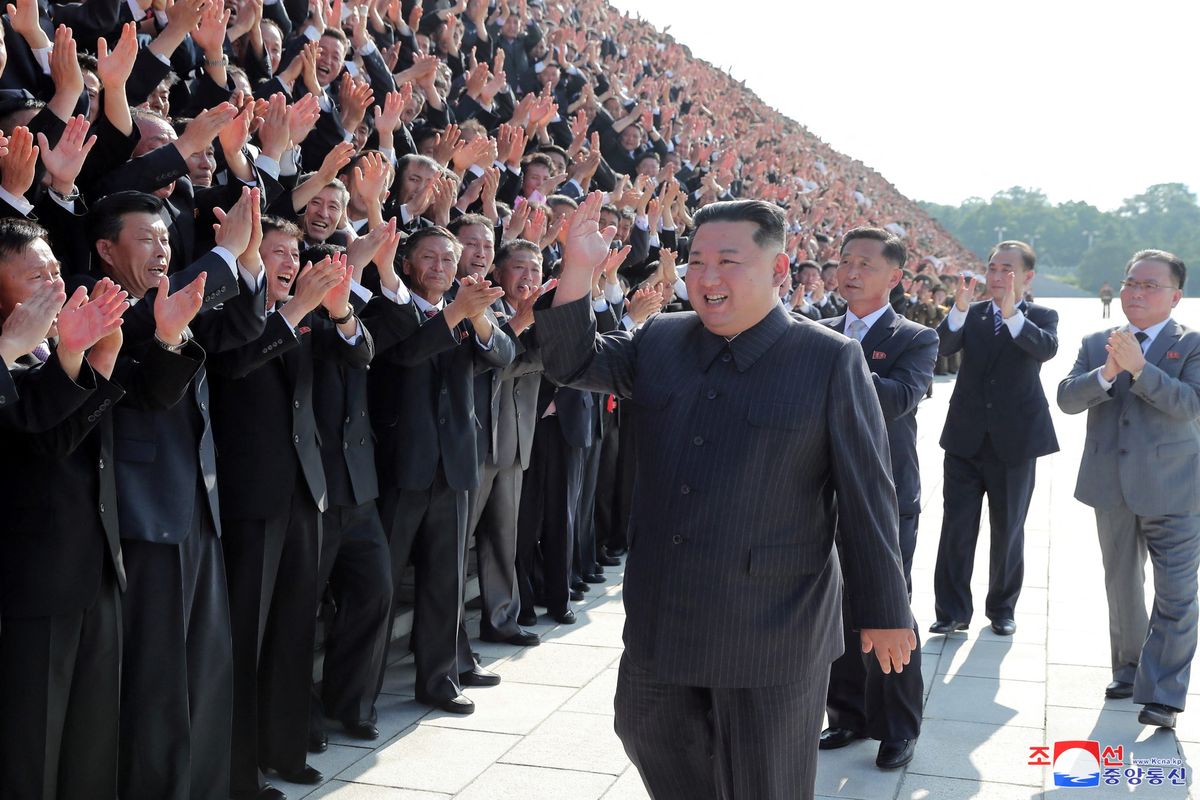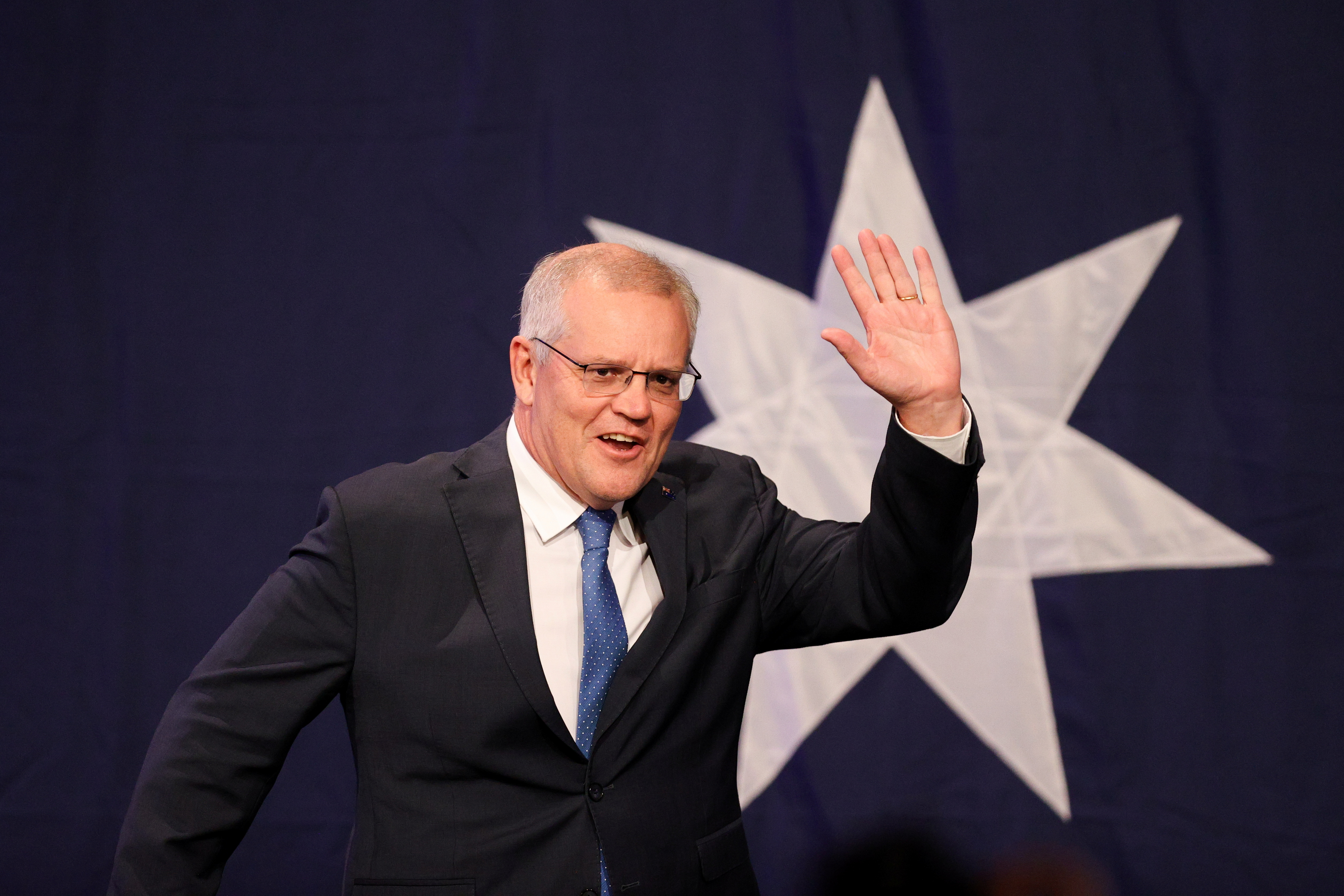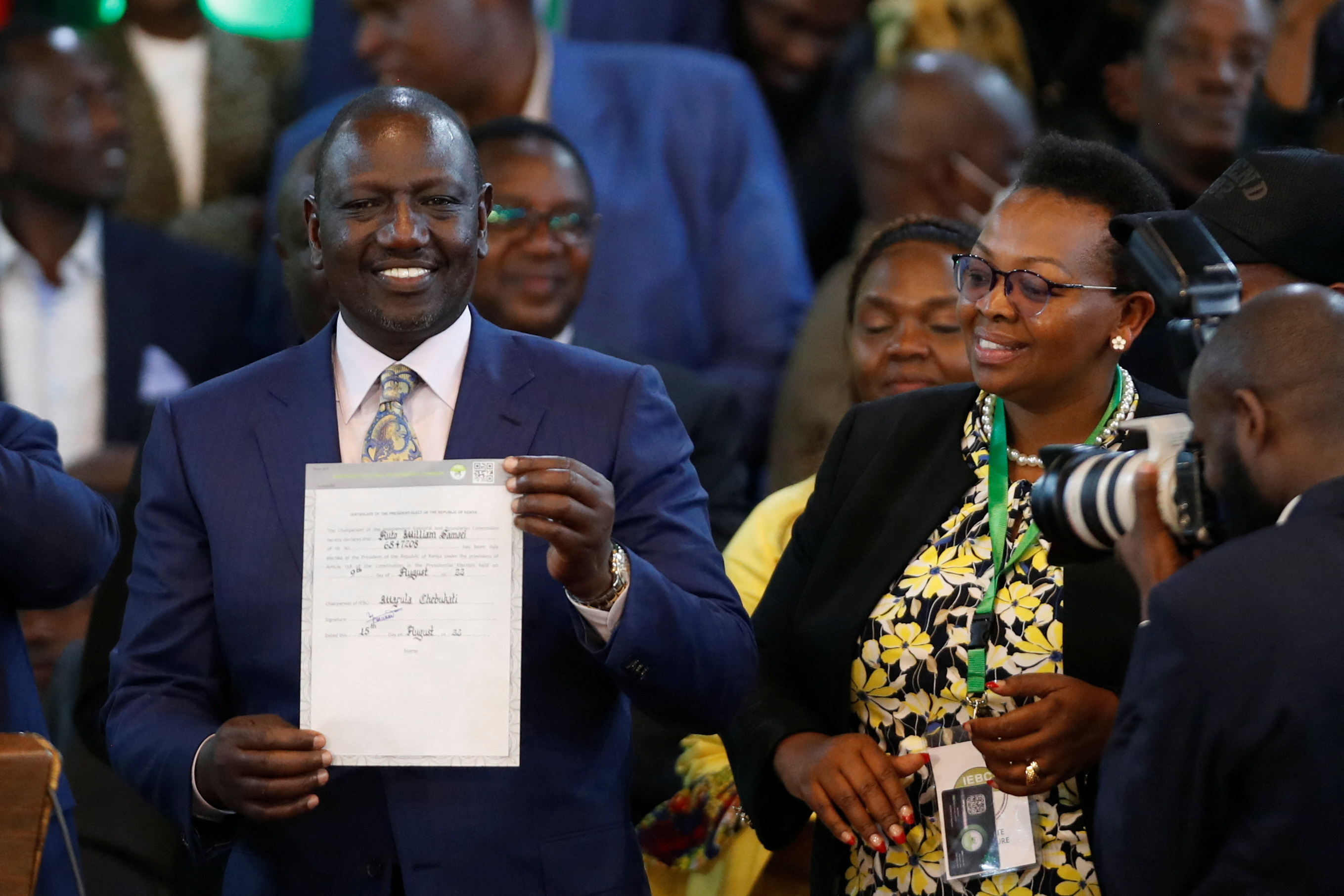From Russia and North Korea’s alliance to a failed red panda matchmaking – Here’s your August 16 news briefing

A few minutes every morning is all you need.
Stay up to date on the world's Headlines and Human Stories. It's fun, it's factual, it's fluff-free.
To start off, we’re looking into:
Russia and North Korea strengthen ties
Historically, Russia and North Korea have gotten along. In fact, the Soviet Union was the first to recognize North Korea as having authority over the entirety of Korea and supported North Korea during the Korean War. Fast forward, and North Korea has shown support for Russia’s invasion of Ukraine. It also rejected the UN’s proposal to remove Russia from the international Human Rights Council (which eventually passed after the Russian army was accused of war crimes in Ukraine), and it recognizes the independence of eastern Ukraine’s Donetsk region, which is currently occupied by Russian forces.
According to KCNA, North Korea’s state-sponsored media, North Korea’s Supreme Leader Kim Jong Un exchanged messages with Putin yesterday. August 15 is also a holiday celebrated in all of Korea to mark the anniversary of the peninsula’s liberation from Japanese imperial rule. Putin’s message to Kim reportedly appealed for stronger ties between the nations, expanding “bilateral relations.” And Kim’s response confirmed the Russian-Korean friendship and predicted growing cooperation between the two against “hostile forces” (read: the US and its allies). But, with the ongoing Russia-Ukraine conflict and North Korea’s controversial nuclear program, how this continued support could pan out is a little uncertain.
Australian former PM secretly held other roles

Scott Morrison served as Australia’s 30th prime minister from 2018 to 2022. Throughout his administration, he faced criticism over his leadership style and responses to national issues. Now, it’s coming out that he also held a secret form of “shadow government” that most people inside his administration didn’t know about.
Reports have come out saying that Morrison took on additional, secret profiles during his time in office, some even being jointly held. On Monday, Governor-General David Hurley – the Queen’s representative in Australia – confirmed he had signed an “administrative instrument” allowing Morrison to take on the portfolios secretly. So, in addition to being the prime minister, Morrison also took on joint portfolios in health, finance and resources. And, he did this all without being publicly sworn in, instead secretly swearing himself into the roles.
Aside from swearing himself in as resources minister, two of Morrison’s other secret roles in health and finance were revealed in a new book, “Plagued,” by Simon Benson and Geoff Chambers. And, according to local news outlets, it wasn’t until last week that the then-Finance Minister, Mathias Cormann, found out that Morrison had jointly held his role.
Australia’s current Prime Minister Anthony Albanese said that he’ll look into the reports of the shared portfolios and seek legal advice about if any of it was even constitutional. Either way, the move draws questions about the unethical centralization of power.
Ruto elected president in Kenya

Kenyans were hit hard both economically and through healthcare by the pandemic. So when it came to the country’s recent presidential election, it was between William Ruto, who ran as an outsider despite having been the deputy president for the past decade, and Raila Odinga, the country’s former prime minister and member of the Odinga family dynasty who was running for the fifth time.
But, in a surprise victory, Ruto won the election with 50.5% of the vote, beating out Odinga with just enough margin to avoid a runoff election. The win was quickly followed by election skepticism, though, with Odinga’s campaign making allegations of vote-rigging and four of the seven members of the country’s electoral commission refusing to endorse the results, saying they were “opaque.”
These kinds of claims aren’t new in Kenya, but they have led to dangerous protests in the past. In 2007, at least 1,200 people were killed after similar claims of a rigged election. Still, Ruto said he plans to look forward, not backward, and move into the future.
To end, we’ll look into:
Apple jumps on ads
How often do you peruse the internet and, despite the million flashing banners on every edge of your screen, wish there were more ads? Just us?
Whether you like it or not, Apple is entering the ad game much harder than before. See, up until now, the two major companies that really make money from ads are Meta and Google. Apple trailed behind them since it was only really putting ads in places like the App Store or Apple News. The company makes about US$4 billion annually from its ad revenue.
But now, it’s looking to more than double that figure by selling ad space in places it hadn’t before. One example is Apple Maps, which has competed with Google Maps primarily by not showing ads. A Bloomberg report also said it’s looking to put ads into its podcast and book apps.
This isn’t the first step the company has made to be more competitive with giants like Facebook, though – last year, it made it so that apps didn’t have access to the same amount of user data that they used to by allowing users to opt-out of tracking. Basically, this means that ads in those apps aren’t as effective since they won’t be tailored from user to user. Now, in addition to trying to squeeze every last penny from Apple customers, the company is also looking to step up advertising competition.
Facebook is pushing back, though. It’s lost a lot of money since the change in the privacy policy, and it says that the changes for Apple mean that Google will get a lot of priority from ad buyers since it doesn’t have the same privacy controls on its platform. Basically, Facebook is claiming to be the underdog in the situation and has launched lawsuits against Apple to, in its own view, try and level the playing field.
Whatever Apple’s reasoning, though, prepare for ad-mageddon.
In other news …
📈Stocks: MSCI rose to 2,842.48, up 0.28%.
📰Some specifics:
- S&P 500 rose 0.40%, up to 4,297.14.
- Nasdaq hit 13,128.05, up 0.62%.
- Dow Jones is up 0.45%, at 33,912.44.
- Hang Seng Index decreased 0.67% to 20,040.86.
🧠Some quick factors to bear in mind:
- Key inflation reports have recently shown that prices in the US are starting to cool down. Now, investors are waiting for the earnings of big retailers like Walmart and Target to see how the giants and their customers have navigated the economic situation.
- China’s COVID restrictions have continued to weigh on the manufacturing, tourism and property sectors.
- China published economic data that was weaker than expected. July industrial output and retail sales numbers of 3.8% and 2.7%, respectively, missed targets of 4.6% and 5%. With that, China’s central bank has cut one of its key interest rates to try and counter the downturn.
- With China’s economic data, military exercises near Taiwan and US delisting concerns, Hong Kong’s stocks weakened on Monday.
👄Some comments and chatter:
“The way the market’s trading, it’s already been braced for bad news, so once it gets it, it doesn’t hurt the market because it’s already prepared for it,” said Truist’s Keith Lerner.
“Although policymakers have ramped up stimulus measures, poor housing market dynamics, weak domestic demand, an impending contraction in exports and the zero-covid policy will limit the effectiveness of these efforts,” strategists at BCA Research said in a report on Monday.
🛢Oil: China is one of the largest importers of crude oil, so its economic concerns have reflected in oil prices, which have dropped by more than 4%. Brent crude futures fell 3.1% to US$95.10, and US West Texas Intermediate crude was down almost 3% at US$89.41 per barrel.
👛Bitcoin: Bitcoin dropped by 1.11% to US$24,046.70.
🛳New Chinese military drills: With a US congressional delegation currently visiting Taiwan, China responded with a round of military exercises. They completed combat alert patrols and military drills in the waters and airspace around Taiwan.
👨👨👧👧Population drop in Hong Kong: Hit by political unrest and the pandemic over the past three years, Hong Kong is seeing a record population drop. Over 113,000 residents have left in the last year, which is a drop of 1.6% (the largest ever recorded).
👂Iran responds to Rushdie stabbing: After author Salman Rushdie’s stabbing last week, Iran has denied any involvement. But, it also called the attack “divine retribution” for Rushdie’s controversial work.
🥽Partition survivors cross the border in VR: In 1947, British-ruled India was divided into two independent nations, Pakistan and India. During the following migration, hundreds of thousands were killed, and tens of millions were displaced. Now, as part of a documentary project called Project Dastaan, Partition survivors can cross the India-Pakistan border for the first time in 75 years using virtual reality. Traveling between the two countries is difficult, so volunteers are taking 3D videos of different hometowns for survivors that are unable to visit themselves.
📴Elon’s AM struggles: We all know that we shouldn’t look at our phones first thing in the morning, but most of us do anyway. It’s a vice that the world’s richest man, Elon Musk, also wants to rid himself of. “I have a bad habit – which I suspect a lot of people do – of immediately checking my phone [in the morning]. It’s a terrible habit, actually,” Musk said in an interview on Full Send Podcast. But he’s set on replacing this morning scroll with a workout soon.
🌳Escaped red panda found: After two days missing in action, Australian zoo escapee Ravi the red panda has been apprehended. He was in a nearby park, hanging out in a fig tree. He was brought to Adelaide Zoo last week with the hopes that he would mate with its resident female red panda, Mishry, only to escape after a few days. Guess she’s not his type.
Written and put together by Jake Shropshire, Vanessa Wolosz, Christine Dulion and Krystal Lai




Comments ()